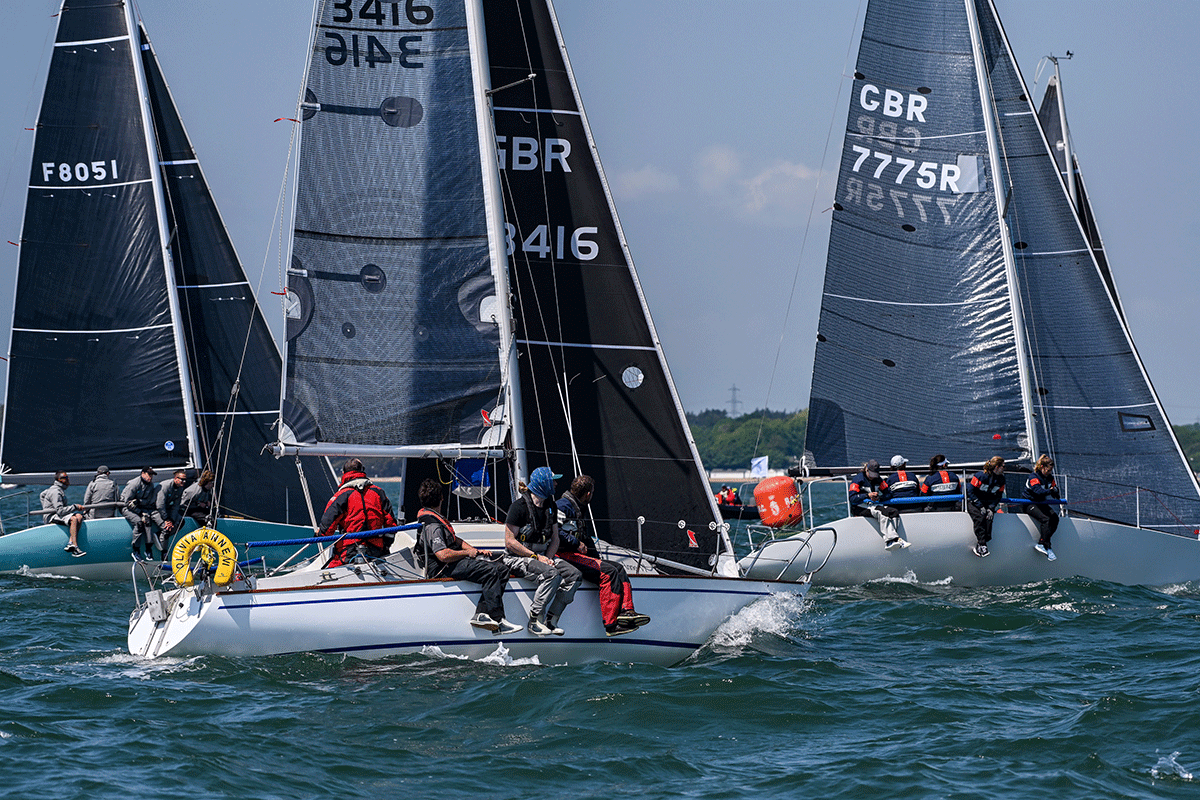If you want to race in a mixed fleet you will need a rating or handicap; this allows diverse designs to compete together and in many events this will be an IRC Rating. Jenny Howells, Technical Manager at the RORC Rating Office in Lymington, explains what IRC is and how it works.
IRC (International Rating Certificate) is a simple, single number rating rule which calculates a time corrector to allow different designs of boats to race together. IRC is the primary rating system in the UK and in more than 30 countries worldwide, and 2024 marks its 40th anniversary. IRC is administered by a small, experienced technical team at the Royal Ocean Racing Club’s Rating Office in the UK and the Yacht Club de France’s Centre de Calcul in France.
How does the rating work?
Unlike a performance handicap, a rating does not change between races depending on performance. Each boat’s rating is calculated from its measurements and design characteristics, resulting in a time corrector (TCC). The higher the TCC, the faster the boat’s potential speed; IRC TCCs range from 0.750 to 2.000, with most cruiser racers between 0.900 and 1.100. After a race, each boat’s elapsed time (the actual time taken to complete the course) is multiplied by her TCC to calculate her corrected time (her race time for scoring purposes). The boat with the shortest corrected time is the winner. For event organisers it is simple to administer and calculate race scores.
What type of boats are suitable for IRC?
Any ballasted monohull of at least 5.00m hull length may hold an IRC rating. Boats of all ages and types win races under IRC, from classics through IOR designs to modern cruisers, cruiser racers and high-end racers. The methods and formulation used for the calculation of IRC TCCs are not published, preventing designers taking advantage of the rule and substantially increasing the competitive lifetime of IRC rated boats.
How do I apply, and how much does it cost?
IRC application is structured to be as simple as possible, with standard hull data for many designs. For a Standard certificate IRC accepts owner supplied data, and you can have confidence that inputs are checked by the rating team with their extensive experience and boat database. Some higher-level events request an Endorsed certificate, which may require weighing or measurement. IRC fees are based on hull length. For a 10m (33’) boat a new application in 2024 is £138, and annual revalidation £122. All certificates expire on 31 December each year as IRC rules and software are updated annually. For some events there is the option of a Single Event Rating.
Where can I race with IRC?
Major regattas and races in the UK use IRC including Cowes Week, Round the Island Race, GBR and Welsh National Championships, Dartmouth Regatta, Ramsgate Week, Scottish Series and many more, as well as local weekly series and regional GBR IRC Championships. Offshore IRC racing is popular including RORC, JOG, EAORA and ISORA programmes, and the Rolex Fastnet Race. After a race or cruise across the Channel or Irish Sea you can use the same rating in IRC events in France and Ireland. Around the globe there are hundreds of regattas, series and offshore races that use IRC rating.
Where can I find more information?
⚫ rorcrating.com for UK IRC information and MyIRC application portal.
⚫ ircrating.org for the IRC rules, measurement and race organiser advice information.
⚫ If you are based overseas please talk to your local IRC Rule Authority. You can find their contact details on ircrating.org – click on Apply Now.













